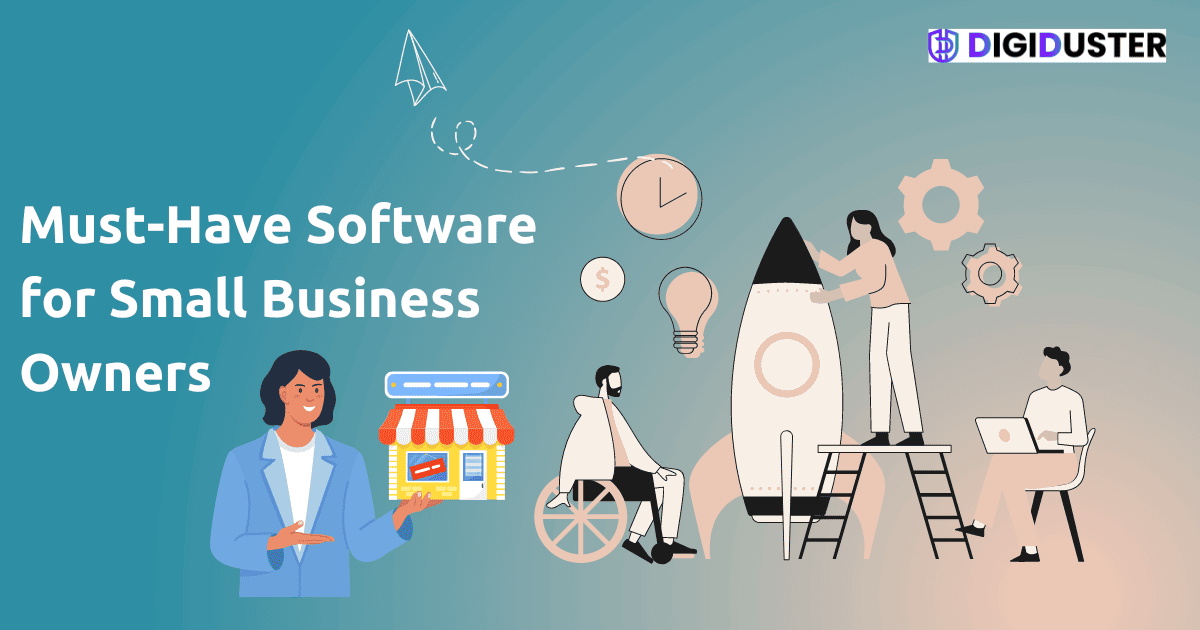Starting and running a small business can be a rewarding yet challenging endeavour. One of the keys to success lies in utilizing the right software tools that can streamline operations, enhance productivity, and improve customer relationships. A complete list of fundamental software for small businesses to make you successful
1. Accounting Software
QuickBooks is the most widely used small business accounting solution. It also makes the process of financial management easy with tools to track income and expenses, edit invoices, and generate statements & reports. QuickBooks can do much of the accounting work on its own, leaving you free to focus on your business.
Key Features:
Expense tracking: expense categorization and automatic logging of expenses
Invoicing: generate and deliver personalized invoices
Financial reporting: Balance Sheets, Profit, and Loss statements & Cash Flow Reports.
FreshBooks is a strong choice for service-based businesses in particular and Xero offers comprehensive features with great reporting.
2. CRM (Customer Relationship Management) Software
Every business must have the ability to manage their relationships with customers efficiently. CRM software – Track customer interactions, makes leads management and sales data analysis
Recommended CRM Tools:
Zoho CRM: Offers extensive features at an affordable price, making it ideal for small businesses.
Salesforce Essentials: Features designed especially for small businesses that allow you to manage your relationship with customers extremely.
These tools enable you to maintain detailed records of customer interactions, which can enhance your marketing efforts and improve customer satisfaction.
3. Project Management Software
Project Management Keeping things organized and efficient is so important. Project management software assists in detailing the projects and sub-projects, their tasks, deadlines, and additional information including how far along are we.
Top Choices:
Trello: Trello is a visual tool that uses boards and cards to organize your tasks.
Asana: Has more complicated features such as timelines, and workload management.
Decision 168: Set clear goals and achieve objectives repeatedly. Track progress, delegate with confidence, and enjoy the flexibility to adjust and accomplish quickly.
See also: Effective Leadership Strategies for Modern Businesses
these tracking platforms help enable teamwork so that all involved are on the same page concerning project objectives and deadlines.
4. Communication Tools
Communication is crucial in any business context. In remote or hybrid work environments, you can make team members more collaborative by using communication tools.
Key Communication Tools
Slack: A chat platform that enables your team to communicate in real-time.
Zoom: Great for Video Meetings and Conferences
And both tools just made it easier for your team to stay connected and be more productive.
5. Email Marketing Software
Another popular way to get in front of your customers is email marketing. Email marketing software: Build campaigns, segment audiences, and track performance.
Email Marketing Systems that are very popular :
Mailchimp: best for ease of use and extensive analytics
Constant Contact: Great customer support and ready-made templates.
Such platforms allow you to stay in contact with your customers using emails, promotional deals, or even personal messages.
6. E-commerce Solutions
If you’re selling products online, having a reliable e-commerce platform is essential. These solutions enable you to set up an online store, manage inventory, process payments, and handle shipping logistics.
Recommended E-commerce Platforms:
Shopify: A comprehensive solution that allows you to create an online store with ease.
WooCommerce: A plugin of WordPress to convert your website into an e-commerce store.
See also: Top Digital Marketing Strategies for Small Businesses
Both options offer various integrations to enhance functionality and improve the shopping experience for customers.
7. Human Resources (HR) Software
For a small business, managing employees effectively is key to its success. This can include things like payroll management, employee onboarding, time tracking, and performance evaluations which HR software wraps up into one slick package for you.
Notable HR Tools:
Gusto: The all-in-one HR platform for payroll processing.
BambooHR: Focuses on employee management with features for tracking performance reviews and benefits administration.
These tools help ensure compliance with labour laws while improving employee satisfaction through better management practices.
8. Document Management Software
Being able to handle your documents properly is one of the keys that will allow you to maintain organization within your business. A document management software makes it easy to store, share, and collaborate on files securely.
Recommended Document Management Solutions:
Google Workspace: Provides cloud storage along with collaborative tools like Google Docs and Sheets.
Dropbox Business: Offers robust file-sharing capabilities with advanced security features.
These platforms facilitate collaboration among team members while ensuring data security.
9. Time Tracking Software
Efficient productivity can be greatly improved when we comprehend where time is lost doing certain things. Time tracking software allows employees to record hours worked on specific projects or tasks.
Popular Time Tracking Tools:
Toggl Track: It is a user-friendly time-tracking tool for teams.
Clockify: Free time tracker with reporting, to see how you spend your time.
Employing this tool can assist in identifying areas within your operations that could be handled a little more efficiently.
10. Cybersecurity Software
As cyber threats become more sophisticated, protecting your business data is paramount. Cybersecurity software helps safeguard sensitive information from breaches or attacks.
Recommended Cybersecurity Solutions:
Avast Business Antivirus: It offers complete protection from both malware and phishing attacks.
Norton Small Business: Security solutions designed specifically for small businesses.
It is important to have an investment in cybersecurity; not only does it keep your business safe but also cements trust with your customers that you take data privacy and confidentiality seriously.
Conclusion
In a world where small businesses compete with both local and international corporations, they must use suitable software tools. When you spend on accounting software, CRM systems, project management tools, communication platforms like video conferencing apps & Slack, e-commerce solutions (if applicable), HR software, document management systems, and time tracking tools along with some cyber security measures in place – each operation is streamlined for efficiency across every niche of your business.
Keep in mind the best mix of tools will differ depending on your own requirements and goals, so do not rush into choosing immediately. By having the right software in place, you will be able to overcome all of these challenges and operate a small business that is efficient and focused on growth!



